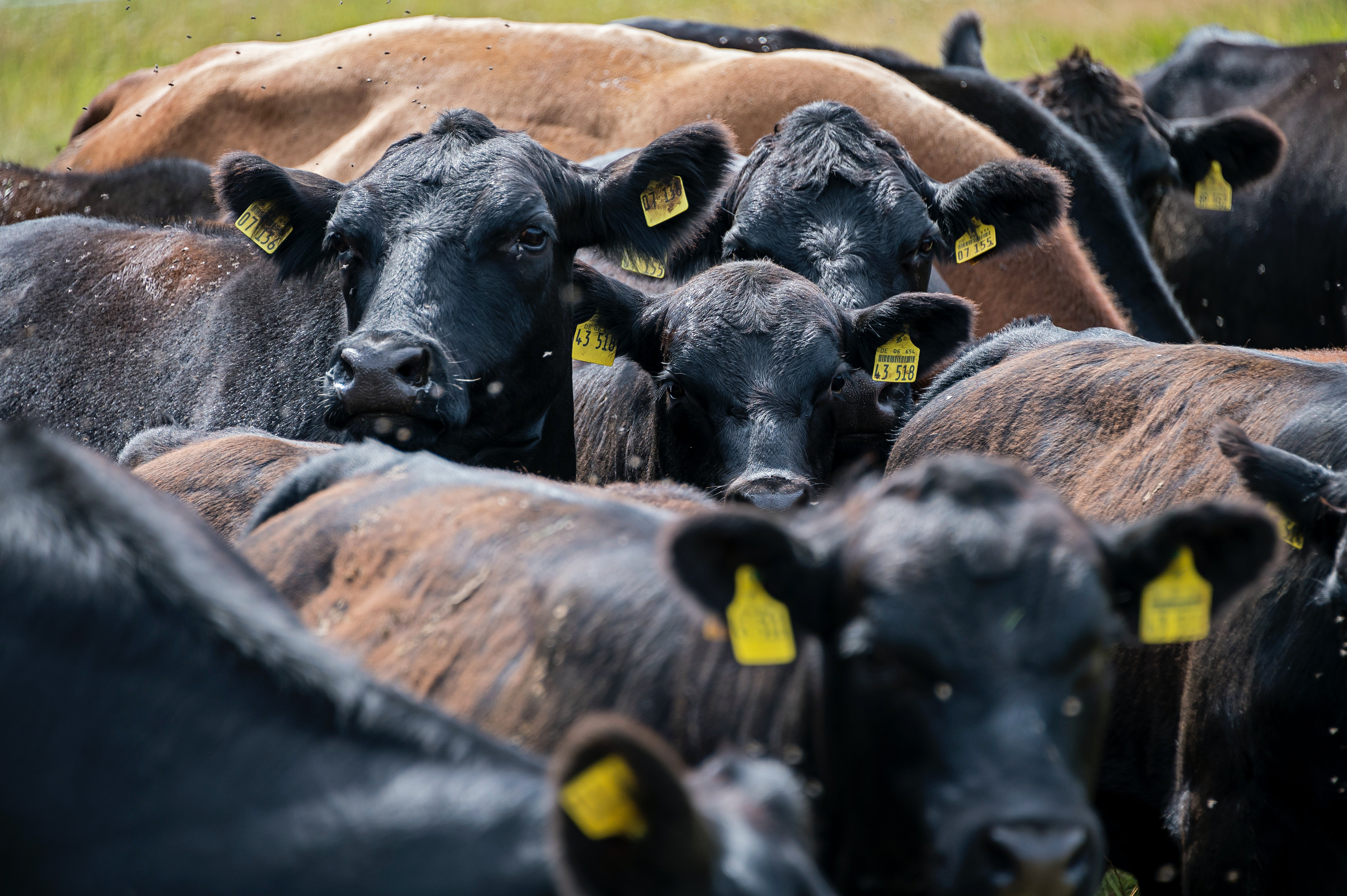Cattle, Climate Change, Sustainability
and moving forward with better feeds and seaweed.
We have recently become aware that methane gas from cows is a significant part of the atmospheric greenhouse gas makeup that is trapping heat and causing climate change. It is also true that beef and other animal-based foods play an important nutritional role, especially in developing countries. Beef consumption continues to increase.
Issues concerning cattle, climate and sustainability include:
Beef and greenhouse gases.
Cattle and other ruminant animals that rechew plants returned from the stomach (cud) produce methane gas during digestion. Cow manure is another source of methane. Another greenhouse gas, nitrous oxide, is also emitted from manure and the fertilizers used to grow cattle feed such as corn.
Because the desire for beef is increasing more land is needed to raise and feed cattle. The problem, from a climate change point of view, is that developing new pasture often requires that trees be cut down. This results in the carbon dioxide, a greenhouse gas, stored in the tree is released. The destroyed tree, of course, is no longer able to absorb carbon dioxide.
To meet the increased demand, pastureland for more cattle could increase to an area of land larger than India by 2050. The resultant deforestation would release huge amounts of carbon dioxide making the goal of limiting temperature rise to 1.5–2.0 degrees C very challenging.
Pigs and beans are more efficient food supplies than cattle.
Ruminant animals like cattle grow and reproduce slower than pigs and chickens. This means that more feed is needed for each unit of beef produced. Of course, more feed requires more land with its carbon cost.
Compared to plants such as beans, beef needs “20 times more land and emits 20 times more GHG emissions per gram of edible protein …”
More sustainable beef production.
Improving the efficiency of cattle production can reduce the number of acres used and methane gas generated per pound of meat. A Kenya study showed that adding better quality feeds like “napier grass and high-protein Calliandra shrubs” can result in faster growth and increased milk production resulting in decreased methane.
Reducing cows’ methane burping has also been made possible by using chemicals such as 3-nitrooxypropan or seaweed. Managing manure more effectively and using strategies that stops nitrogen in manure from becoming nitrous oxide can also decrease greenhouse gas emissions.
This article is based on:
Waite, R., Searchinger, T., Ranganathan, J., & Zionts, J. (2022, March 7). 6 pressing questions about beef and climate change, answered. World Resources Institute.
Photo by Etienne Girardet @ Unsplash
